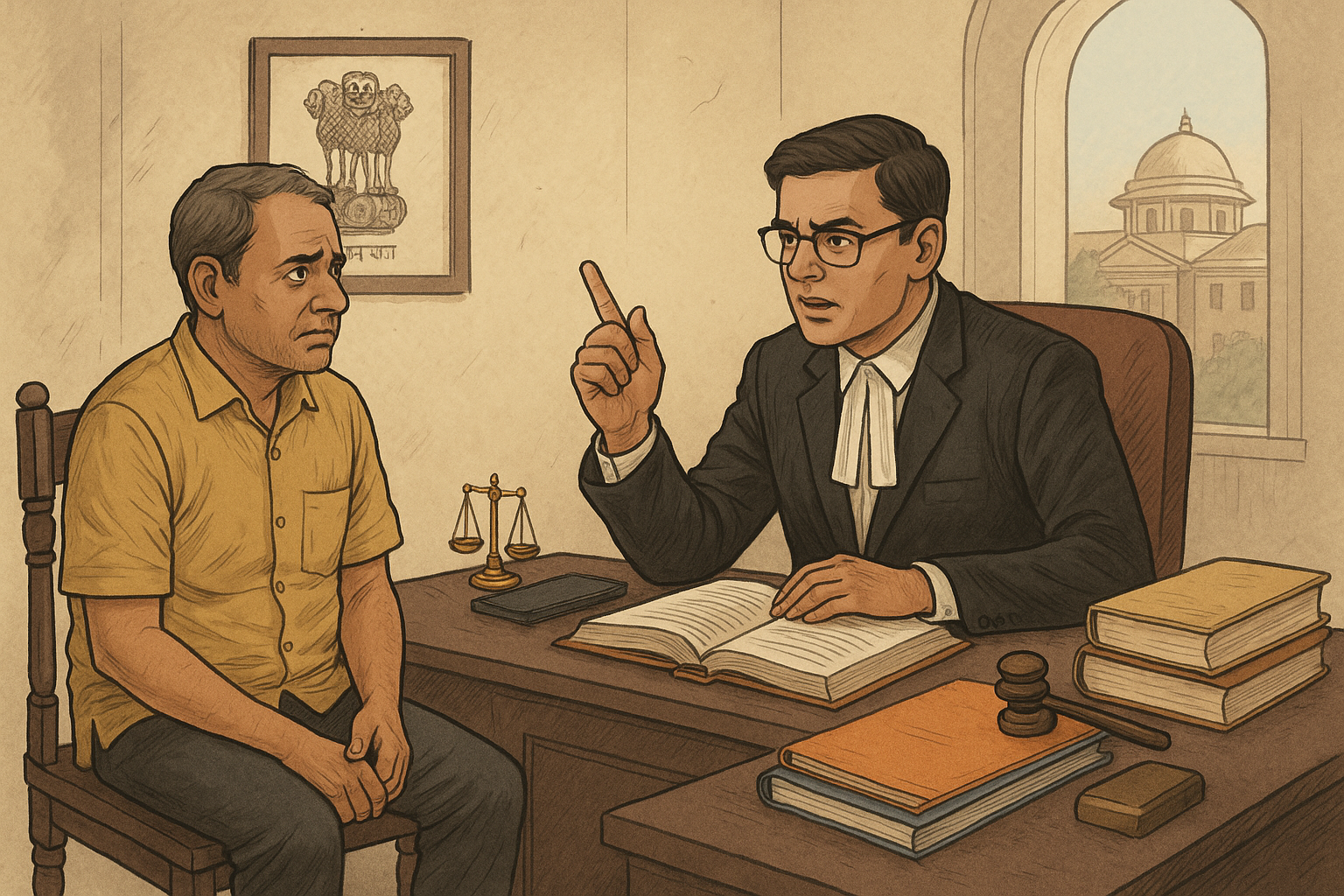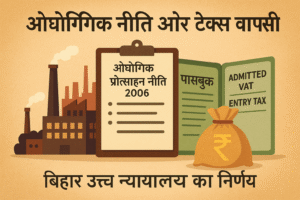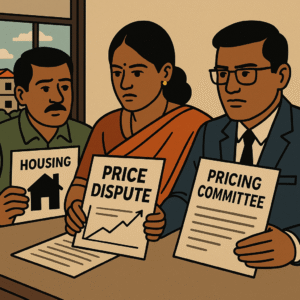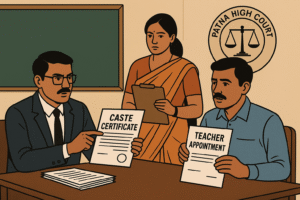Simplified Explanation of the Judgment
This case was filed before the Patna High Court by a former legislator who had been allotted government accommodation during his tenure as a Member of the Bihar Legislative Assembly. After resigning from his membership in 2014, the petitioner continued to occupy the allotted government house. The Estate Officer of the Building Construction Department raised a demand for recovery of house rent, calculated as ₹20,98,757/-, for the period of unauthorized overstay. This was communicated through a letter dated 24.08.2016 by the Executive Engineer.
The petitioner argued that he was entitled to retain the accommodation because of his association with the State Legislature Research and Training Bureau (Rajya Vidhaayi Adhyayan evam Prashikshan Bureau). He challenged the rent demand on this basis.
However, this was not the first time he had approached the Court. Earlier, in 2015, when a similar demand of ₹14,14,118/- was raised for the same government house, he had filed CWJC No. 19237 of 2015. That writ petition was unconditionally withdrawn on 06.01.2016 without seeking permission to refile.
The State pointed out that the issue remained the same—liability to pay rent after resignation—and that the only difference was in the amount claimed, which had increased with time.
The Court examined the legal position and noted that:
- The earlier writ petition, filed for the same cause of action, had been withdrawn unconditionally.
- The petitioner also initiated a Title Suit No. 03 of 2016 before the Civil Court, where certain interim orders were passed.
- The principle of law is that once a writ petition is withdrawn without reserving liberty to file a fresh one, the petitioner cannot again raise the same issue through another writ petition.
The Court relied on the Supreme Court’s ruling in Joint Action Committee of Airline Pilots’ Associations of India (ALPAI) v. Director General of Civil Aviation (2011) 5 SCC 435, which held that parties cannot “blow hot and cold” by taking inconsistent positions and filing multiple writ petitions on the same cause after withdrawing earlier ones.
Accordingly, the Patna High Court held that the petitioner was estopped from filing a second writ petition. The writ petition was dismissed but the Court clarified that the dismissal would not prejudice the petitioner’s pending civil proceedings in the Title Suit, which could be decided on their merits.
Significance or Implication of the Judgment
- For Legislators and Public Servants: The case highlights that government accommodation cannot be retained indefinitely after cessation of official capacity. Any overstay invites liability for rent recovery.
- For Litigants in General: The judgment reinforces that a writ petition once withdrawn without liberty cannot be refiled for the same relief. Courts discourage repeated litigation on the same cause to prevent unnecessary burden and contradictory outcomes.
- For Government Departments: The decision strengthens the legal position of government authorities in recovering dues for unauthorized occupation of government property.
- For Judiciary and Legal Practice: The ruling demonstrates consistent application of the principle of estoppel and judicial discipline—litigants must take consistent positions and cannot re-agitate identical issues by filing successive writs.
Legal Issue(s) Decided and the Court’s Decision
- Whether a second writ petition for the same relief is maintainable after unconditional withdrawal of the first writ petition?
- Decision: No. The Court held that the petitioner was estopped from re-filing, citing the Supreme Court ruling in Joint Action Committee of ALPAI v. DGCA.
- Whether overstay in government accommodation after resignation entitled the State to recover rent?
- Decision: The Court did not go into merits of the claim, since the writ petition itself was barred on maintainability. The issue of rent recovery was left to be addressed in pending civil proceedings.
Judgments Relied Upon or Cited by Court
- Joint Action Committee of Airline Pilots’ Associations of India (ALPAI) v. Director General of Civil Aviation & Ors., (2011) 5 SCC 435.
Case Title
Avanish Kumar Singh v. State of Bihar & Ors.
Case Number
Civil Writ Jurisdiction Case No. 19359 of 2016
Citation(s)
2021(2) PLJR 251
Coram and Names of Judges
Hon’ble Mr. Justice Madhuresh Prasad (Oral Judgment dated 13.01.2021; uploaded on 06.03.2021)
Names of Advocates and who they appeared for
- For the Petitioner: Mr. Vijay Kumar, Advocate
- For the State: Mr. Mahendra Prasad Verma, AC to SC-20
- For Respondents 7 & 8 (Legislative Council): Mr. Kaushal Kumar Jha, Advocate
Link to Judgment
MTUjMTkzNTkjMjAxNiMxI04=-IFlZWmiBr9E=
If you found this explanation helpful and wish to stay informed about how legal developments may affect your rights in Bihar, you may consider following Samvida Law Associates for more updates.








